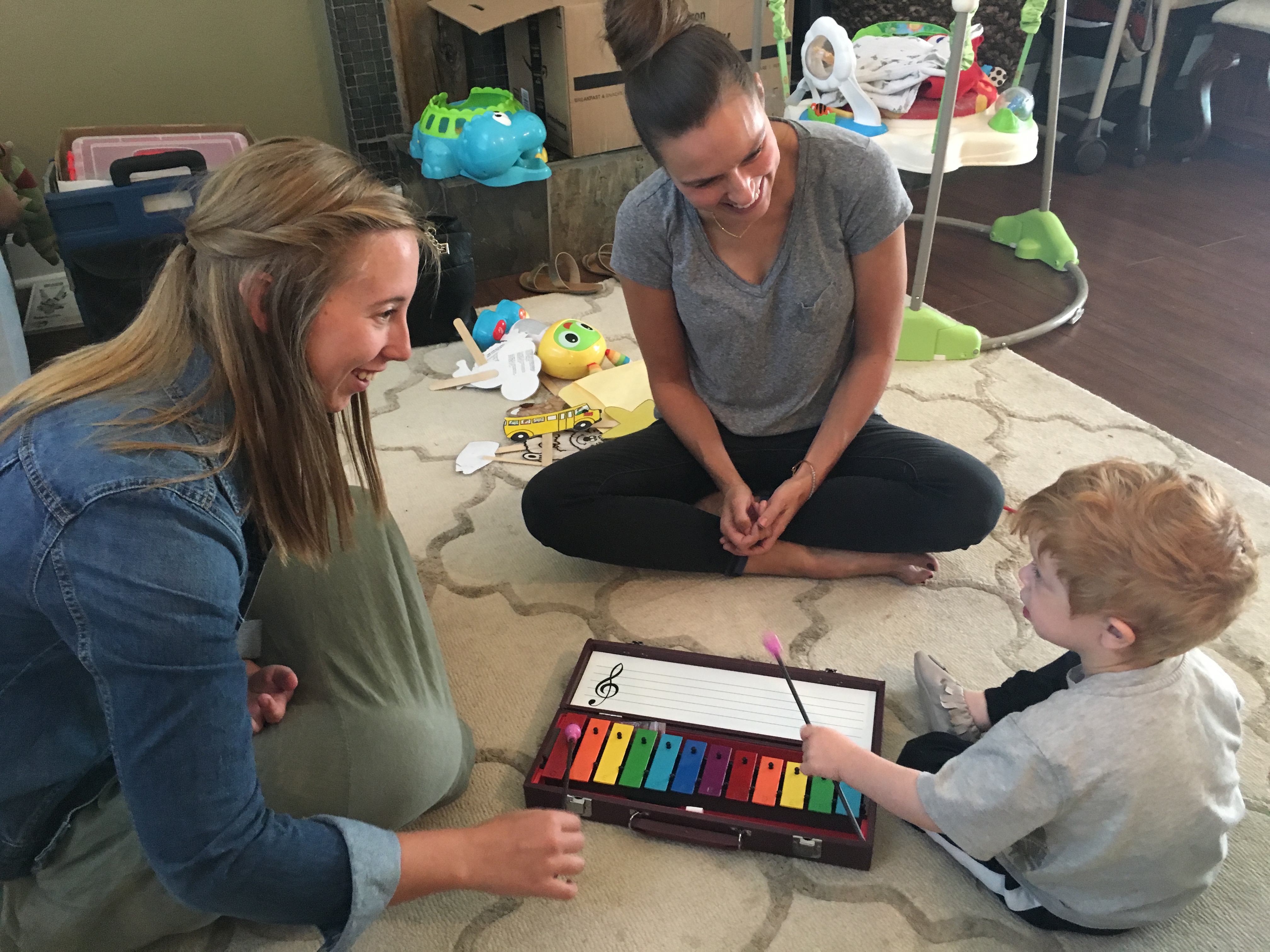Can ABA and Music Therapy Work Together?
In our music therapy practice, many of the private clients we work with have an Autism diagnosis. In recent years, we have begun to explore ways of reaching these kids beyond our own walls, and have collaborated with ABA programs. ABA, or Applied Behavioral Analysis, is one of the most widely recognized evidence-based practices for individuals with Autism. In clinics where ABA focuses on Natural Environment Training, it pairs beautifully with music therapy approaches.
Both music therapy and ABA have unique approaches and goals, and they can be integrated to provide a more comprehensive and effective treatment plan for individuals with specific needs, such as those on the autism spectrum or with developmental disabilities.
Music Therapy is recognized as an evidence-based practice for individuals with Autism Spectrum Disorder. Music therapy utilizes music and musical interventions to address physical, emotional, cognitive, and social needs of individuals. It can promote relaxation, self-expression, emotional regulation, communication, and social interaction. Music therapists use various techniques, such as singing, playing musical instruments, movement to music, and improvisation, to achieve therapeutic goals.
ABA therapy, on the other hand, is a scientifically validated approach that focuses on the principles of learning theory to bring about positive behavior changes. It involves the use of systematic and structured techniques to assess and modify behavior. ABA therapy aims to increase desirable behaviors while decreasing challenging behaviors by breaking skills down into smaller, manageable steps and using reinforcement and prompting strategies.
When used together, Music Therapy can provide a motivating and engaging medium for individuals to participate in ABA therapy interventions. The incorporation of music into ABA sessions can enhance engagement, attention, and motivation, making the learning process more enjoyable and effective. Music can serve as a reinforcement tool, providing immediate positive feedback when desired behaviors are displayed. It can also help individuals with self-regulation, attention, and social skills, which can further support the goals of ABA therapy.
Collaboration between Music Therapists and ABA therapists is crucial for developing an integrated approach. They can work together to design individualized treatment plans that incorporate both therapies’ strategies and techniques. Communication and coordination between the therapists are key to ensuring consistency and maximizing the benefits for the individual receiving therapy, and sessions are often most effective when both the music therapist and ABA provider are both present.
It’s important to note that the effectiveness and appropriateness of integrating Music Therapy and ABA therapy may vary depending on the individual’s needs and goals. Therefore, it is recommended to consult with qualified professionals in both fields who can assess the specific situation and provide guidance on the most appropriate treatment approach.
How we integrate with ABA programs
Individual Music Therapy with ABA
Some ABA companies hire our music therapists to come into their facility and provide 1:1 music therapy services with the Registered Behavior Technician (RBT) or Board Certified Behavior Analyst (BCBA) present. We address goals that are already included on the child’s treatment plan, and may create additional goals as needed.
In this case, parents typically sign up to add music therapy to their child’s treatment plan, and the music therapist sees the child during their regular weekly hours at the ABA clinic.
Individual music therapy allows the child to generalize the skills they’re working on throughout the day. It also provides additional motivation, increases engagement, and children will often show accelerated progress in this music therapy. The co-treating therapists are often delighted to see the progress the child makes in music therapy, as it gives them additional data about the child’s capabilities and natural responses.
Group Music Therapy with ABA
Music therapists can also provide group sessions in ABA clinics. This can either be in structured groups with the same children each time, or an open group where any of the children currently receiving services can come in and participate. Groups are an effective way to address social skills, and to further generalize target skills in a new setting.
Music therapy groups in ABA settings may include movement to music, instrument exploration, vocal play, singing, relaxation, choice-making, and simple group games. The music therapist designs the group to meet the needs of the individual present, and can address several different goals simultaneously within the same session.
If you work at an ABA clinic, or are a parent who sends your child to a clinic, make sure to ask about music therapy collaboration! Our team is available to answer questions and provide support as needed, so don’t hesitate to reach out.

